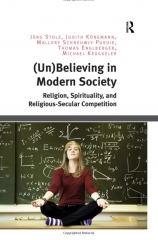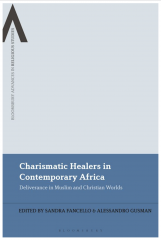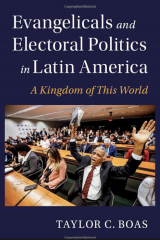 For a deeper understanding of the various ways through which Evangelicals get involved in Politics in Latin America, this new book from Prof. Taylor Boas (Boston University) is a must-read:
For a deeper understanding of the various ways through which Evangelicals get involved in Politics in Latin America, this new book from Prof. Taylor Boas (Boston University) is a must-read:
"Why are religious minorities well represented and politically influential in some democracies but not others? Focusing on evangelical Christians in Latin America, this book argues that religious minorities seek and gain electoral representation when they face significant threats to their material interests and worldview, and when their community is not internally divided by cross-cutting cleavages. Differences in Latin American evangelicals' political ambitions emerged as a result of two critical junctures: episodes of secular reform in the early twentieth century and the rise of sexuality politics at the turn of the twenty-first.
In Brazil, significant threats at both junctures prompted extensive electoral mobilization; in Chile, minimal threats meant that mobilization lagged. In Peru, where major cleavages divide both evangelicals and broader society, threats prompt less electoral mobilization than otherwise expected. The multi-method argument leverages interviews, content analysis, survey experiments, ecological analysis, and secondary case studies of Colombia, Costa Rica, and Guatemala."
Link
Permalink
Categories: Evangelicals Charismatics Pentecostals
Tags: latin america, taylor boas, evangelicals, evangelicalism, cambridge university press, boston university, brazyl, peru, chile, colombia, costa rica, guatemala
0 comments
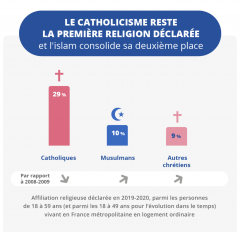 According to the French national institute for statistical and economic studies (INSEE), in 2019‑2020, 51% of the population aged 18 to 59 in metropolitan France declared that they had no religion.
According to the French national institute for statistical and economic studies (INSEE), in 2019‑2020, 51% of the population aged 18 to 59 in metropolitan France declared that they had no religion.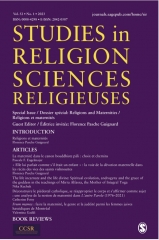 Evangelical Protestantism is often studied from the angle of proselytizing and conversion dynamics.
Evangelical Protestantism is often studied from the angle of proselytizing and conversion dynamics.
